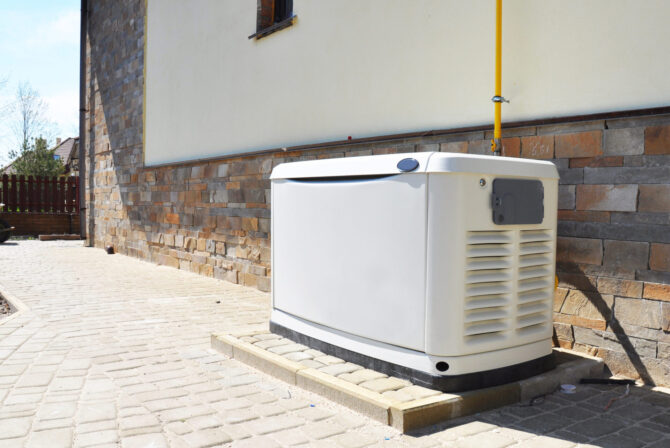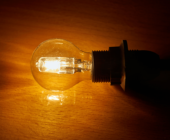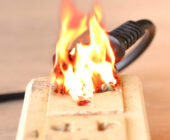
There are few things in life more irritating and disruptive than power outages. Even minor outages that last only a few seconds leave you scrambling around the house, resetting clocks and other devices. When you find yourself in the dark without electricity, you may wonder what in the world could be causing the power outage.
At Champion Home Services, we want to inform you of the different causes of home power outages so you aren’t left in the dark–literally. Once you know the cause of the outage, there may be a few actions you can take to deal with the situation at hand.
Permanent Faults, Brownouts And Blackouts
There are three types of power outages that you may experience in your home:
Permanent Faults
This occurs when something causes damage to a transmission or distribution power line. You can only fix this outage with direct service from trained electrical professionals. In other words, permanent faults need immediate attention to restore power to the affected area.
Brownouts
When an area experiences a brownout, it’s usually because there is not enough power to go around. Thhe voltage of electricity supplying each home is reduced, which can cause your lights to dim or flicker. Many appliances that you plug into the wall won’t work during a brownout because most appliances require a certain voltage to work properly.
Due to their reduction in voltage, they can no longer carry out their functions. Brownouts aren’t very common in the United States since the power grid is very reliable and powerful.
Blackouts
Blackouts are more concerning than brownouts. When the power grid as a whole gets overloaded, it can fail. This means a larger-scale blackout can occur, leaving many homes without power, sometimes for several weeks.
1. Storm Power Outages
The most common cause of power outages is weather. There are many ways storms affect the power grid. Wind and lightning can knock down trees, which can land on power lines or interfere with transmission equipment. Excessive flooding and heavy snow can also damage power lines, leading to outages.
In many cases, outages caused by storms can be resolved quickly. However, damage to the transmission equipment may cause blackouts. If your home’s power is out and you recently experienced a storm, the damage is probably to blame for the outage. To be sure, contact your power company to confirm and check when the power will be back on.
2. Naturally Induced Outages
Another common cause of power outages is the exposure of power lines to naturally occurring events. When trees get older and die or rot, they may fall onto power lines, disrupting the power supply to the surrounding houses and buildings. Another common culprit of power line damage is animal interference. Animals, primarily squirrels, chew through important wires, short-circuiting the power supply. As animals run along the wires or build nests, this can also damage the lines and disrupt the flow of electricity. These outages are usually easy to fix once the problem is located.
3. Human-Caused Outages
Sometimes, power outages happen due to human error. Occasionally, someone may disrupt a power line while they’re working in their yard. Drivers or construction workers crash into poles, knocking down lines and disrupting the equipment. Sometimes, humans who work for the power company may use the equipment improperly, leading to an outage. In other situations, humans may disrupt the power grid with malicious intentions.
4. Planned Outages
It isn’t uncommon for power companies to schedule planned power outages. These allow them to carry out electrical maintenance on the equipment to prevent future, unexpected outages. In most cases, these outages are announced to the people that they affect so they don’t catch them by surprise.
What Should I Do To Fix A Power Outage?
The first step you should take when you are experiencing a home power outage is to check outside and see if your neighbors are experiencing the outage as well. If their power is working, you may have blown a fuse and your circuit breaker may need to be reset. If your neighbors also have no power, the best thing you can do is call your power company or look on their website to gather more information about the outage.
To prevent the negative effects of a power outage, you can invest in a generator! Using a generator ensures that when the power goes out, you will always have a second source of electricity for your home. Champion Home Services can help you decide which generator is right for your home and help install it. We would be happy to help you with all your electrical needs! Call us today to schedule an appointment.




